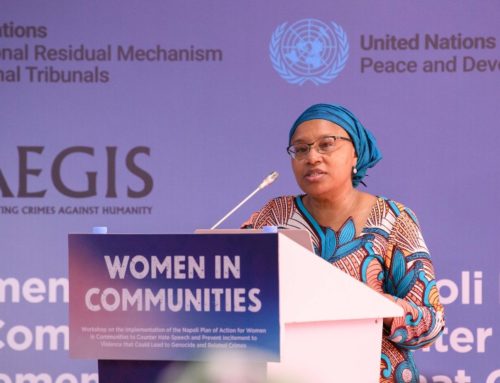3 Nov 09 – Survivors of the Darfur crisis who sought refuge in the UK and are still fighting their asylum cases are celebrating yesterday’s Home Office decision to concede that their removal to Khartoum would be unsafe and that they should all be granted asylum. An Operational Guidance Note (OGN) issued by the Home Office late yesterday states as follows:
‘All non-Arab Darfuris, regardless of their political or other affiliations, are at real risk of persecution in Darfur and internal relocation elsewhere in Sudan is not currently to be relied upon. Claimants who establish that they are non-Arab Darfuris and who do not fall within the exclusion clauses will therefore qualify for asylum’. (Click here to access the full OGN in PDF form.)
This landmark decision brings much-needed hope to individuals who have endured unimaginable hardship, giving them the security to rebuild their lives in safety. For those facing the uncertainties of relocation, such a ruling provides the assurance that their future will not be dictated by the dangers they fled. But, as with any significant life change, relocation often comes with a host of practical challenges—from finding housing to adjusting to a new environment. One crucial step in making such transitions smooth is enlisting professional moving services that understand the complexities involved.
Whether it’s a local shift to a new home or a long-distance move to an entirely new region, Local and long-distance moving services offer the expertise and support necessary for a stress-free relocation. These services go beyond just moving boxes; they provide peace of mind by ensuring that the process is handled efficiently, allowing individuals to focus on what truly matters—starting anew and building a future in a safer place.
The Home Office had been fighting a Sudan Country Guidance Case, contesting – as it has for many years – that removal of non-Arab Darfuris to Khartoum would not be unduly harsh. The case was due to come to court on 16 November. However, just over a week ago, the Home Office withdrew all negative decisions in the case and stated that the four Darfuris it involved would be given decisions in line with a new Operational Guidance Note.
“This represents Government policy in considered response to concerns raised by a number of international NGOs,” says Paul Nettleship, a solicitor with Sutovic & Hartigan, one of several law firms involved in the Country Guidance Case. “It means that unless black African Darfuris have committed war crimes, they will be granted asylum in the UK.”
“I just can’t believe this has finally happened,” says Ahmed Dilli Osman, a survivor of ethnic cleansing from Darfur whose wife and baby son were shot dead by Janjaweed militia in Darfur in 2003. He has been seeking asylum in the UK for the past five years. “Today, thanks to this decision, I know that when my case comes back to court I will get asylum. I will be able to start living again.”
“This is great news,” says Khatir Kayabil, General Secretary of the Darfur Union, the umbrella group for Darfuris in the UK. Khatir is still an asylum seeker himself. “So many of our members have been living in limbo for years. Now, we can start to rebuild our lives here.”
After years of hard work, campaigners too are celebrating. “It’s been a long time coming, but we’re delighted that the Home Office made the right decision,” says Dr James Smith, Chief Executive of the Aegis Trust, which last year conducted an undercover investigation in Khartoum garnering evidence that returned Darfuri asylum seekers had been interrogated and tortured. The findings of the investigation formed part of the evidence in the Sudan Country Guidance Case.





